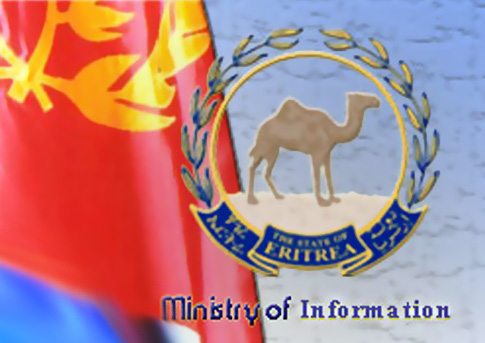The conference of Somali elders in Mogadishu which opened last Saturday has continued all this week. It is supposed to come to an end this weekend but may be extended. The conference has brought together some 135 Somali traditional elders to decide on the nomination and selection of the 825-member Constituent Assembly that will discuss and adopt a new constitution and chose a new parliament later this month. The meeting is taking place at the heavily guarded police academy in Mogadishu’s Abdiaziz district. Al-Shabaab, which rejects the whole process, threatened to derail the meeting and to target elders who take part in the conference, saying those who attended should be considered as ‘outside Islam’.
President Sheikh Sharif, the Speaker of the Parliament, Sharif Hassan and Prime Minister Dr. Abdiweli Mohamed Ali Gaas were among those who attended the opening of the meeting along with other ministers and MPs. They received the traditional elders with enthusiasm and praised their leadership. President Sharif Sheikh Ahmed expressed his “confidence in the elders” and his belief that the elders’ conference would lead the nation to a "national unity". The President also expressed his appreciation to the donors that had supported Somalia throughout the transitional period. The Prime Minister stressed that the fact that the government could host a major conference on this scale underlined the improvements that had been achieved in the security area. The Minister for the Constitution, Mr. Abdirahman Hosh Jibril, took the opportunity to criticize some of the misinformation being disseminated by certain groups about the draft constitution. He stressed it complied with Islam and with the faith of the Somali people. He encouraged the public to support the traditional elders in delivering their mandate. The Transitional Government has made it clear it considers this conference a significant milestone in completing the still outstanding benchmarks in the Roadmap.
The meeting has not been without controversy. The start was delayed amid reports that President Sharif and Speaker Sharif Hassan had “disagreed over the selection process” for the elders. If so, they must have subsequently settled their disagreement as both attended the opening session. There were delays in the arrival of some representatives, and complaints that others from south-central regions had been "hand-picked by TFG officials”. There were also reports that Ahlu Sunna wal Jama’a representatives had not been invited. In fact, the Ahlu Sunna administration from areas of south-central Somalia was well aware of the importance of the meeting. Omar Sheikh Mohamed, an Ahlu Sunna official in Guri’el, noted the importance of attending the elders meeting in Mogadishu and stressed the administration had set up a committee to select traditional elders to represent central Somali regions during the meeting.
Although Al-Shabaab has not disrupted the meeting, it has prevented some traditional elders from towns in Hiiraan, Lower and Middle Shabelle regions in Buqda-Aqable, El-Ali and Mukeyle from travelling to Mogadishu. It was part of Al-Shabaab’s efforts to threaten traditional leaders intending to participate in the meeting, apparently to try and persuade the elders to nominate and select people from Al-Shabaab-controlled areas for the Constituent Assembly, and make sure those who will be in the next parliament will be pro-Shabaab
The Secretary-General’s Special Representative and Head of the UN Political Office for Somalia (UNPOS), Ambassador Mahiga, welcomed the inauguration of the meeting. He said it was an important step on the road to ending the country’s transition, calling it “a moment of optimism for all Somalis”. Mr. Mahiga emphasized that the credibility of those chosen by the Elders would have a “profound effect” on the constitution-making process and the selection of the new legislative body. He called on all parties to ensure that this was done in a timely, consultative and efficient manner as it was an essential first step on the long path ahead. It was "critical to get it right". Ambassador Mahiga encouraged the elders to choose the best representatives for both the Constituent Assembly and the Parliament. He added that both the UN and the international community would be giving their full support to this process for the successful ending of the transition and eventual lasting peace and stability in Somalia. Attending the conference as observers were Somali civil society groups who stated their commitment to support the traditional elders in "embodying not only the interests of civil society groups, but also the larger society as well".
The draft constitution itself also remains an object of controversy. A number of people have criticized specific articles and elements, including President Abdirahman Mohamud Farole of Puntland. President Farole has written to Ambassador Mahiga, copying his letter to the Ambassadors of the UK, the US and the EU, arguing that the draft does not clearly define the expected fundamental principles of a federal system of government. “The draft does not distribute power and resources between the federal and state institutions as well as define competency in the delivery of public goods to citizens of Somalia but rather it is highly centralized, confusing and contradictory.” He said Puntland had appealed for wider consultations but it was also deeply disappointed with those groups who rejected the draft without reading it. President Farole called for an emergency meeting of Somali principals and diplomats of the international community “to discuss and address contentious issues… before it is too late.”
Meanwhile, the National Joint Security Committee which includes representatives from the United Nations, the African Union, the Intergovernmental Authority on Development (IGAD), the United States and the United Kingdom, as well as government and defence officials, met early this week under the chairmanship of Prime Minister Dr. Abdiweli Mohamed Ali. Also present were representatives of Puntland and Galmudug states and of Ahlu Sunna wal Jama’a. It agreed to proposals to unify all pro-government forces and put them under the command of the TFG Defense Ministry. Mr. Hussein Arab Issa, Defense Minister of the TFG, said it was time to centralize the operations of the various groups fighting under the TFG’s banner against militant Al-Shabaab and Al-Qaeda extremists. Prime Minister Dr. Abdiweli also noted that there was little need to have forces operating outside the central command of the government defence structure. Defence Minister Hussein said the Committee, which meets every two months and whose overall objective is to coordinate efforts in support of Somalia’s security institutions, had also requested the international community’s help to establish military camps to be used by the unified forces.
* Originally published on the A Week in the Horn, May 11, 2012 issue, titled ‘The Conference of Somali elders continues in Mogadishu’.
*************
Check the Somalia archive for related posts.





